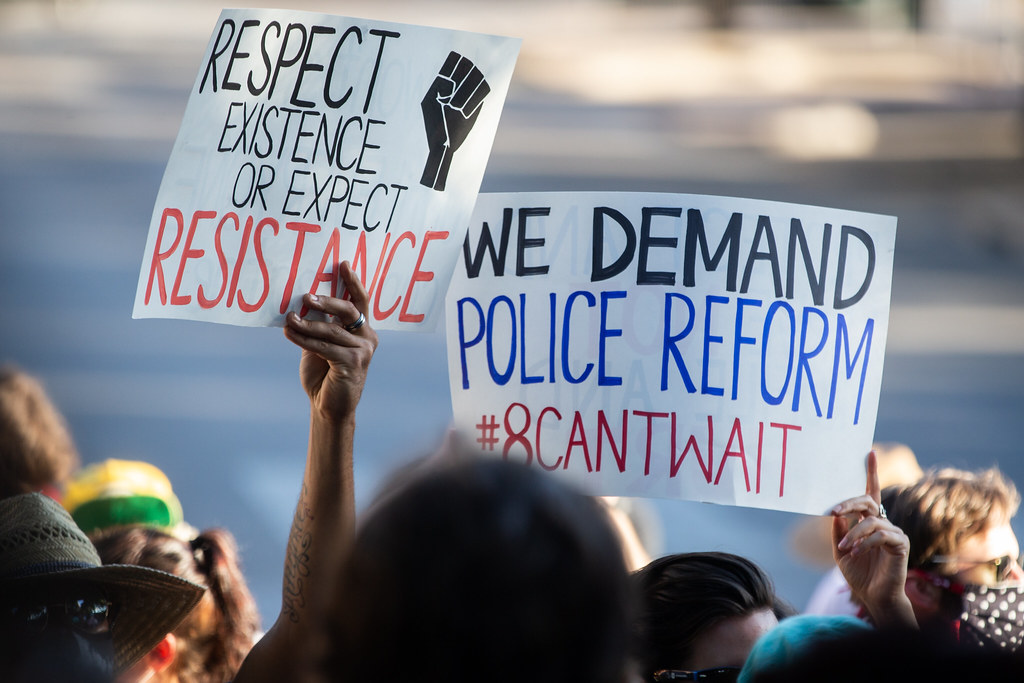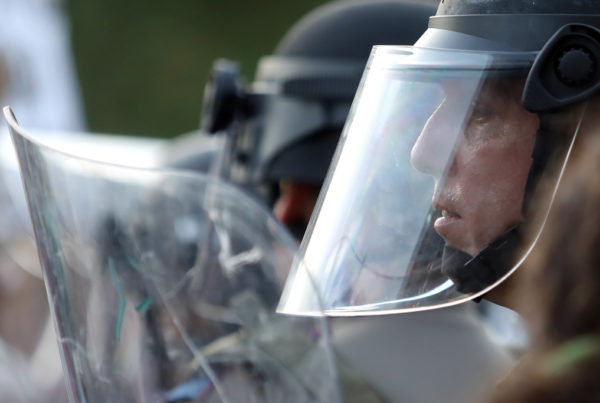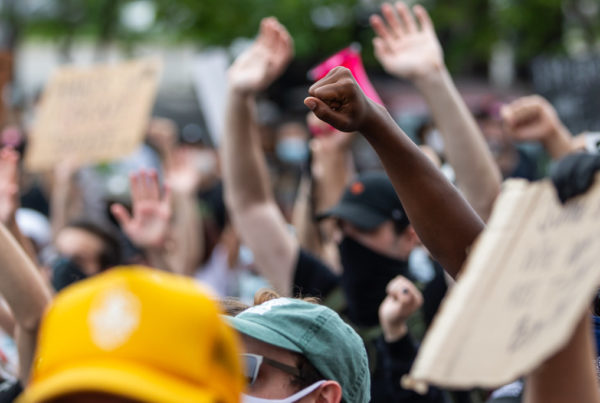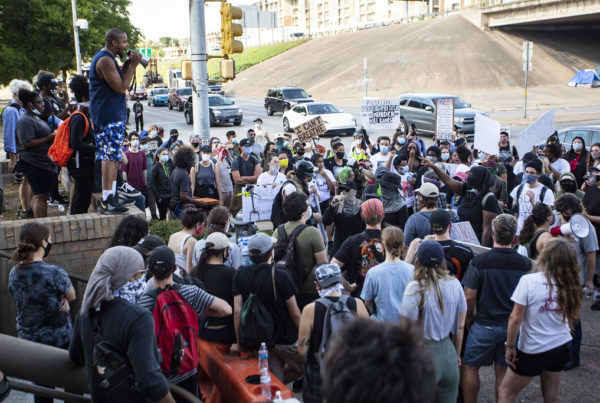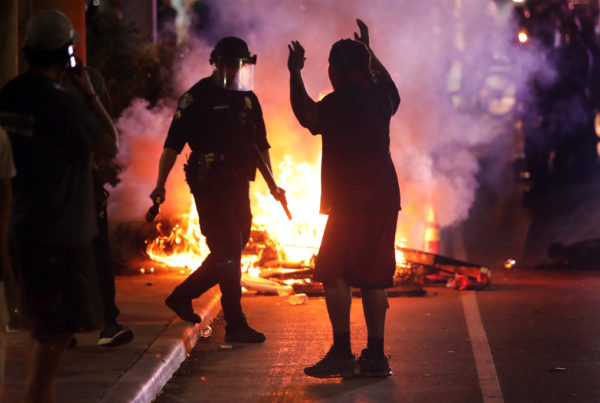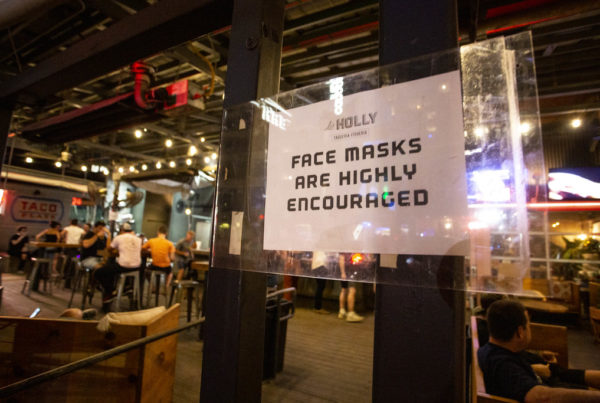The recent nationwide protests against police brutality have renewed the focus on discrimination and racism black Americans have experienced at the hands of law enforcement.
Larry Schooler is a conflict resolution expert and senior fellow at the Annette Strauss Institute for Civic Life at the University of Texas at Austin. He says it might be time for a full-throated truth and reconciliation process in the United States. Schooler is also the author of the forthcoming book “Truth Talks: Resolving Conflict Together in North America’s Truth and Reconciliation Commissions.”
He told Texas Standard host David Brown on Friday that the U.S. needs to establish its own reconciliation commission.
“Truth and reconciliation commissions stem from this whole idea of restorative justice, which is meant to bring about repair,” Schooler said.
There are templates for such a commission – and not just from the well-known example in South Africa after the end of apartheid in 1995. North America has had its own commissions, which Schooler examines in his book.
One was in Greensboro, North Carolina, in 2004. It centered around a 1979 shooting of members of the Communists Workers Party by the Ku Klux Klan. At the time, there was a criminal trial, but no guilty verdicts. Schooler said that commission commandeered the help of Archbishop Desmond Tutu, a major figure in South Africa’s commission, to work through the trauma and conflict that had lingered decades after the shooting.
“There were a lot of folks in Greensboro that felt that it needed to be dealt with more directly,” Schooler said. “They formed the first truth and reconciliation commission in the U.S. back in 2004, and completed their work two years later.”
Another commission, in Canada in 2008, focused on restorative justice for First Nations Canadians who were forced to go to “residential schools,” and were physically and sexually abused, underfed and unprotected from disease. And a 2012 commission in Maine similarly addressed the “cultural genocide” of Native American children who were sent to non-native foster families who were often abusive or deprived them of connections to their tribes and cultural heritage.
“Race … played a pivotal role in all three commissions even though they came from different, specific origins,” Schooler said.
In his estimation, a truth and reconciliation process for black Americans is long overdue.
“We have tested various other forms of making progress on these critical issues of race and policing and public safety and those tests have failed,” Schooler said. “We’ve got to take a chance on a concept that may feel a little bit foreign to an American audience, but has proven to be impactful in a lot of different parts of the world.”
One of the most restorative parts of the process is giving everyone an opportunity to be heard.
“People on all sides welcome the opportunity just to make their case,” Schooler said.
Even with the Ku Klux Klan, he said their participation in the Greensboro case made many people uncomfortable. But the commission also learned a lot about their mindset that may not have come to light otherwise.
“I think it really changed the trajectory of that commission’s work, and inspired a lot of other organizations around the world,” he said.
These commissions are sometimes government-led, sometimes independent. Either way, they need government support to enact recommendations. In Canada, for example, the commission has the full support of the national government – so much so that a majority of the commission’s nearly 94 calls to action are being enacted. The Greensboro case was more complicated: the city council voted along racial lines to oppose the commission’s recommendations. But that changed when the city elected a female, African American mayor.
A truth and reconciliation process for black Americans could be a pathway toward reparations. After all, Schooler said, restorative justice is mean to “repair” a community that was wronged – a word that is linguistically tied with “reparations.”
“I think that a commission should not be told at the outset to take anything off the table. I just think that the important thing is for the conversation to be an open one,” he said.
Web story by Caroline Covington.
If you found the reporting above valuable, please consider making a donation to support it here. Your gift helps pay for everything you find on texasstandard.org and KUT.org. Thanks for donating today.


